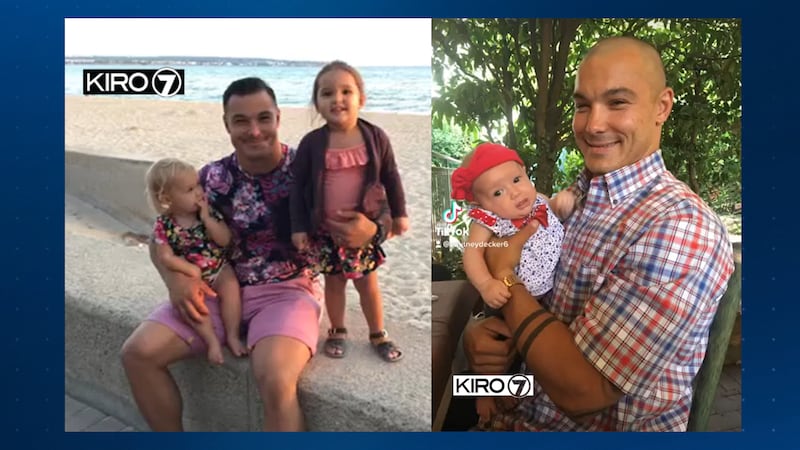SUMNER, Wash. — Former Sumner High School basketball coach Jacob Jackson was sentenced to 40 years in prison on Thursday for sexually abusing players.
It follows an emotional sentencing hearing where one of the players who suffered the abuse, and several parents of other victims, testified about the pain that they have endured in the years since it occurred.
KIRO 7 is not naming the victims nor their families, though they revealed that after Jackson’s arrest in 2023, the details of the case have been weaponized against them in school, and by opposing teams the boys would face while playing.
“Standing here today is not an easy task, but I will not let shame and fear silence me. The pain I experienced will not define me, nor will it hold power over my future,” said one of the players who suffered the abuse.
Court documents and testimony revealed Jackson would send inappropriate messages over text or social media to players. That eventually led to inviting them over to his house in Lake Tapps. That’s where players say they were sexually abused. The first player said it began in 2018.
In 2022, the first player went to the police, and Jackson was charged in 2023.
In January, a jury convicted Jackson of 19 crimes, including several counts of rape, child molestation, sexual exploitation of a minor and communicating with a minor for immoral purposes. Some charges included an “ongoing pattern” designation, all of the charges included an “adult in a position of trust” enhancement.
“I knew where you and [Jackson’s wife] met, where you liked to vacation. I knew a lot about you,” one mother of a victim said to the court.
“What I somehow didn’t know, what I somehow failed to recognize over a two-year period of time is that you were grooming, communicating inappropriately, molesting, and raping my son. For that, I will never forgive you and pray someday I will forgive myself,” she said.
Judge Phillip Sorensen oversaw the trial and tried to ease the parents’ blame on themselves.
“I wish I could say, hey, it’s not your fault, parents. It’s not, I will tell you that. It’s [Jackson’s]. That’s not going to help you, but it’s not your fault.” Hon. Sorenson said.
Parents and players, through family friends reading their statements, spoke about how the abuse has broken their ability to trust, to have friendships, or romantic relationships. One player was told he had the talent to play basketball in college, but because of the abuse, he couldn’t bring himself to play.
Many have sought therapy and counseling to try and get back control of their lives.
“I don’t trust people like I used to, even when they are trying to help,” one adult read for one of the boys.
“Even when I have big accomplishments in my senior year, getting awards and recognition, there’s a voice in my head asking, ‘Do I really deserve this?’ Deep down, I know that I do, but I have flashbacks and moments where I question my worth and whether I would ever fully heal.”
Through tears, Jackson apologized and expressed remorse for ‘what I have done,’ naming the players a jury found he had abused.
“I am forever sorry for my actions, where there is no excuse or explanation. The remorse I have deep in my soul will never go away,” Jackson said.
Judge Sorensen questioned the sincerity of his apology.
“What’s striking to me, Mr. Jackson, is that your remorse is deep, your sadness profound. You’ve destroyed your family, your life, true, but part of me thinks what you’re really unhappy about is you got caught,” Sorensen said.
He pointed to players coming forward as a turning point.
“If that hadn’t happened, I think it would have just continued,” Sorensen said.
The standard range for the crimes is a ten-year sentence, Jackson’s defense attorney argued. Prosecutors asked for all crimes to be sentenced consecutively, as opposed to concurrently, which would have added to an approximate 80-year sentence. Judge Sorensen ruled that given the number of victims and the length of time during which the abuse occurred justified what is called an ‘exceptional sentence’ of 40 years.
As families advocated for the maximum sentence, they felt that justice was an important step in their healing process.
“From all of this, I have made it my mission to stay on my feet and keep moving forward. I have been tested, but I will not break. No matter what obstacles come my way, I will rise above them. I am strong, I am resilient, I am not a victim, I am a survivor,” one of the players testified.
©2025 Cox Media Group





